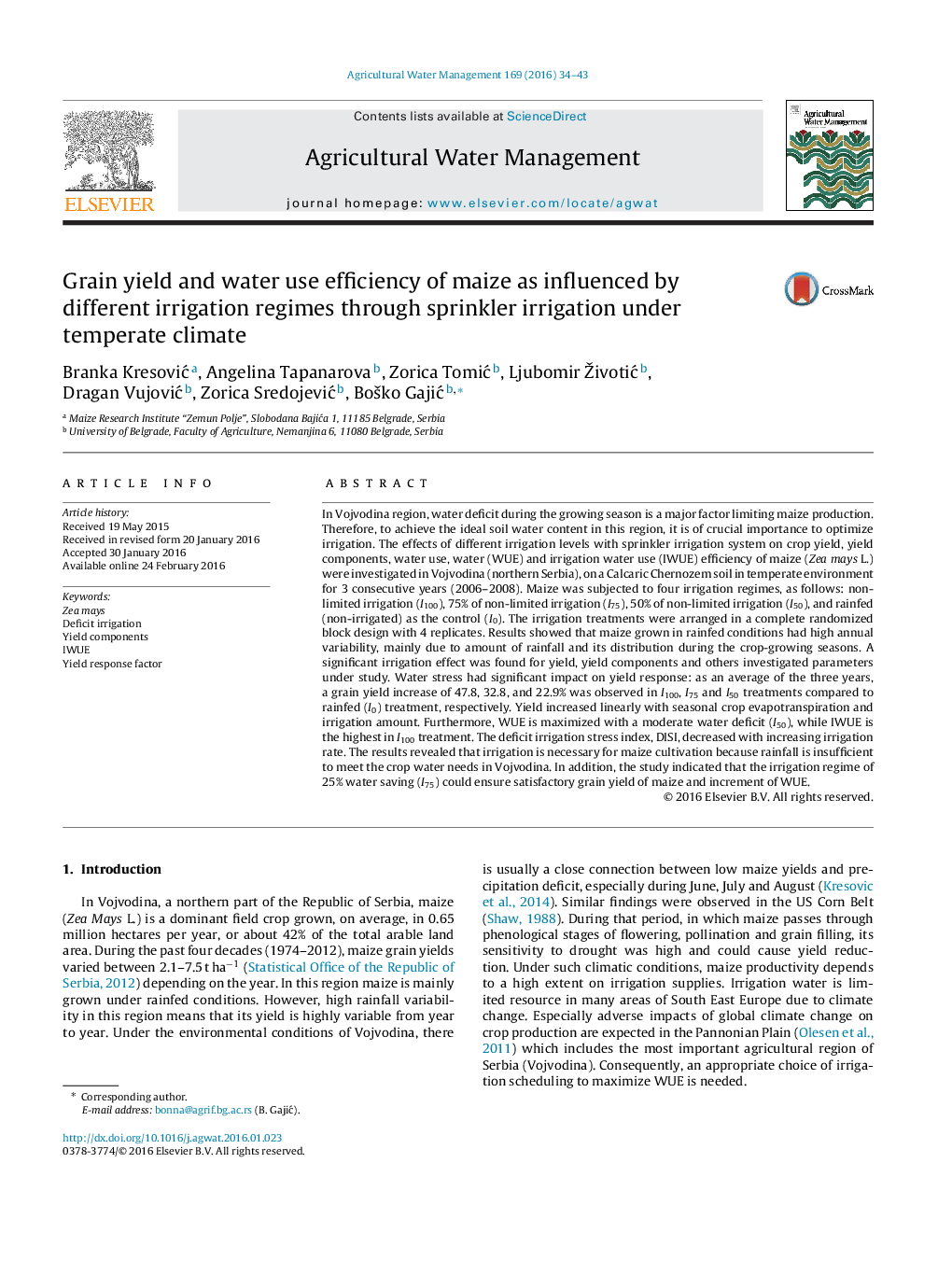| کد مقاله | کد نشریه | سال انتشار | مقاله انگلیسی | نسخه تمام متن |
|---|---|---|---|---|
| 4478276 | 1622911 | 2016 | 10 صفحه PDF | دانلود رایگان |
• The effects of deficit irrigation on maize yield and WUE were evaluated.
• Rainfed maize grain production was drastically reduced in the years of low rainfall.
• Water productivity of maize production increased with deficit irrigation.
• Deficit irrigation at 50 and 75% of the full requirement may be a valuable practice.
In Vojvodina region, water deficit during the growing season is a major factor limiting maize production. Therefore, to achieve the ideal soil water content in this region, it is of crucial importance to optimize irrigation. The effects of different irrigation levels with sprinkler irrigation system on crop yield, yield components, water use, water (WUE) and irrigation water use (IWUE) efficiency of maize (Zea mays L.) were investigated in Vojvodina (northern Serbia), on a Calcaric Chernozem soil in temperate environment for 3 consecutive years (2006–2008). Maize was subjected to four irrigation regimes, as follows: non-limited irrigation (I100), 75% of non-limited irrigation (I75), 50% of non-limited irrigation (I50), and rainfed (non-irrigated) as the control (I0). The irrigation treatments were arranged in a complete randomized block design with 4 replicates. Results showed that maize grown in rainfed conditions had high annual variability, mainly due to amount of rainfall and its distribution during the crop-growing seasons. A significant irrigation effect was found for yield, yield components and others investigated parameters under study. Water stress had significant impact on yield response: as an average of the three years, a grain yield increase of 47.8, 32.8, and 22.9% was observed in I100, I75 and I50 treatments compared to rainfed (I0) treatment, respectively. Yield increased linearly with seasonal crop evapotranspiration and irrigation amount. Furthermore, WUE is maximized with a moderate water deficit (I50), while IWUE is the highest in I100 treatment. The deficit irrigation stress index, DISI, decreased with increasing irrigation rate. The results revealed that irrigation is necessary for maize cultivation because rainfall is insufficient to meet the crop water needs in Vojvodina. In addition, the study indicated that the irrigation regime of 25% water saving (I75) could ensure satisfactory grain yield of maize and increment of WUE.
Journal: Agricultural Water Management - Volume 169, May 2016, Pages 34–43
